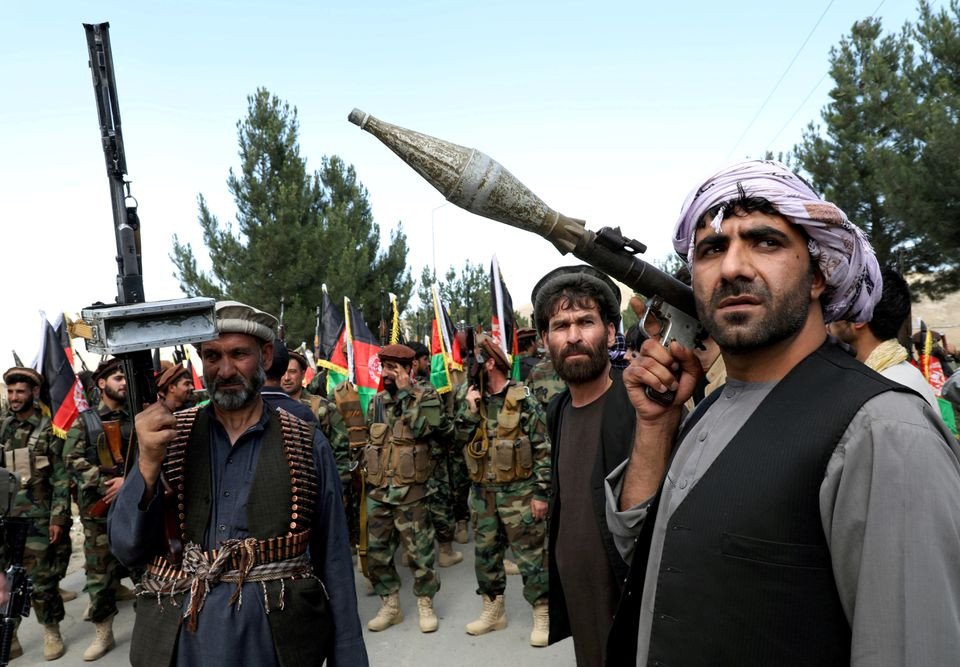Afghanistan: Before Time Runs Out
 The withdrawal of remaining U.S. and NATO troops in Afghanistan is nearly complete. As they go, the country begins a new, uncertain chapter in a long uncertain history. With the U.S. and our allies having made significant investments and great sacrifices in an attempt to develop self-sustaining Afghan institutions – and the Taliban now rampaging through the countryside – this is the moment of truth for the country’s government and post-9/11 political order.
The withdrawal of remaining U.S. and NATO troops in Afghanistan is nearly complete. As they go, the country begins a new, uncertain chapter in a long uncertain history. With the U.S. and our allies having made significant investments and great sacrifices in an attempt to develop self-sustaining Afghan institutions – and the Taliban now rampaging through the countryside – this is the moment of truth for the country’s government and post-9/11 political order.
Whether Afghanistan’s institutions, security forces, and civil society prove sufficiently resilient to meet current challenges is not solely a matter of local capacity and resolve (or wisdom of previous donor decisions). Nor is it a matter of free choice between competing political views, as Afghans are not going to the voting booth to decide the outcome. It is equally about the commitment of the U.S. and our allies to continue supporting the equality of Afghan women and minorities, rule of law, free speech, and basic human rights. These are not foreign impositions, as some might argue, but rather vital weapons, absent U.S. troops, in the Afghan people’s own struggle against extremism and political regression.
For many, there is justifiable fatigue with America’s “forever war” and its costs; but the Taliban’s repressive rule and its consequences are not a specter of another lifetime. It has only been 20 years since Afghan girls were banned from going to school; women barred from the workforce and life outside the home; and summary justice, including stoning and decapitation, for transgressions against the Taliban’s medieval code meted out in the national stadium. It has only been 17 years since Afghans were first given the constitutional right to choose their leadership at the ballot box. Progress is recent, and the Taliban is determined to make it reversible.
With growing concerns about Afghanistan’s current trajectory, President Ashraf Ghani flew to Washington on June 25th to gauge the level and seriousness of U.S. pledges of “enduring” support. To most observers, it was an 11th hour plea for help as reporting from the country’s frontlines is not inspiring confidence. Predictions by U.S. security agencies, meanwhile, are growing more dire by the day.
While promised assistance to the Afghan National Security Forces will prove critical to underpinning Afghanistan’s stability in the near term, military aid alone will not be sufficient to preserve the country’s post-9/11 human rights and development gains. To help Afghans defend against the Taliban’s declared aim of turning back the clock on women’s rights and electoral participation, among other targets, the U.S. and our allies must commit to a multi-pronged strategy to continue nurturing the equally vital civilian side of the equation.
Robust, ongoing technical and material support to Afghan institutions and civil society must be an essential component of this strategy. Ensuring the viability of independent media, free speech, and political debate, on the one hand, and the public’s access to education and other vital services, on the other, is integral to Afghanistan’s stability, the legitimacy of its government, and the viability of the current political order. Supporting the supply and demand sides of Afghanistan’s post-9/11 national compact should thus be a U.S. national security priority. As the Taliban and its patrons, including the Islamic State and Al Qaeda, know well, the most powerful counterpoint to their obscurantist and extremist narrative is an educated, open, and free society.
Implementing an effective post-troop-withdrawal, “civilian” strategy will, undoubtedly, test the flexibility and creativity of U.S. assistance tools, not to mention the public’s patience. Such an effort, however, is not one the U.S. can or should undertake alone. With NATO troops following the U.S. to the exit ramp, vigorous diplomacy is required to maintain international partnerships committed to supporting Afghanistan’s continued progress. Neither the U.S. nor our allies can afford a situation where an absence of troops leads to absence of international interest in Afghanistan’s political and developmental outcomes. Events 20 years ago this September evidenced how an impoverished, isolated, and authoritarian country anywhere can pose a global threat.
Today, as the Biden Administration ponders next steps, the limits of Afghan institutional capacity and U.S. resolve are being tested to the extreme. With millions of Afghans desperate for signs of continued international confidence in the viability of the country’s post-9/11 institutions (and the virtue of further sacrifice therein), the Taliban have come to their own conclusion: that the U.S., for its part, has lost faith in the potential returns on continued investment in human potential in a faraway land. Opponents of basic liberties and decency everywhere are hoping the Taliban are proven right.
The views expressed here represent the author’s own.
Related posts:
Category: EUROPE & EURASIA, FOREIGN POLICY & SECURITY, INTERNATIONAL LAW & HUMAN RIGHTS, MIDDLE EAST & NORTH AFRICA

